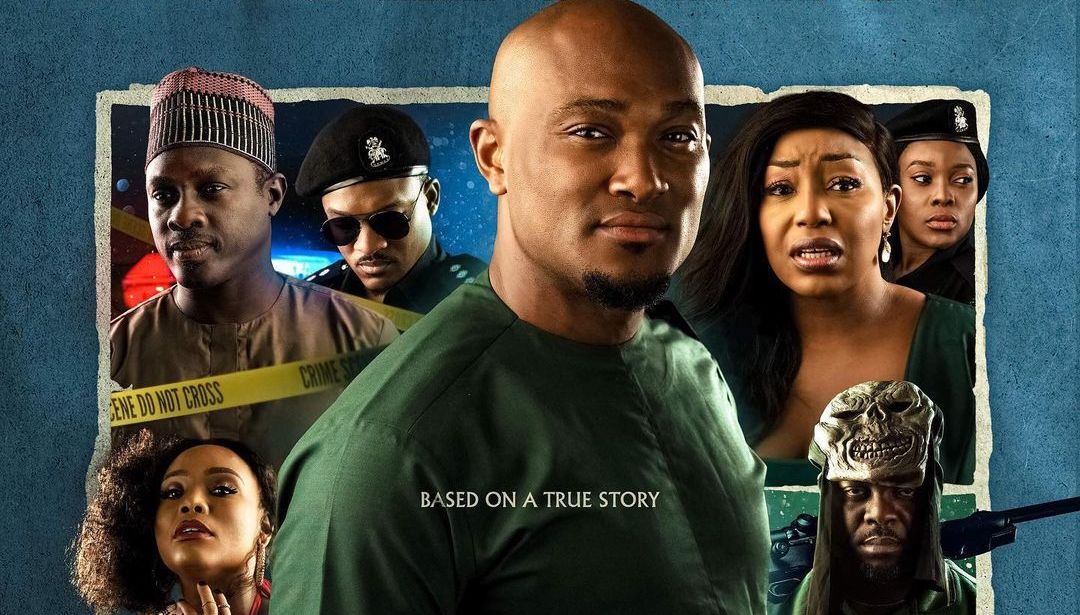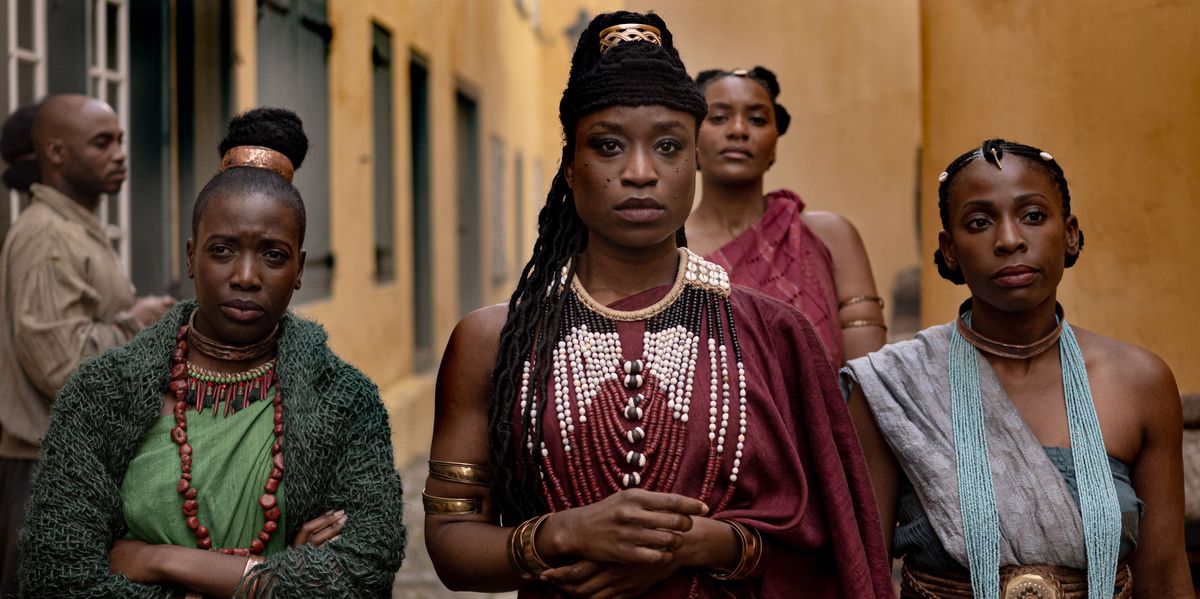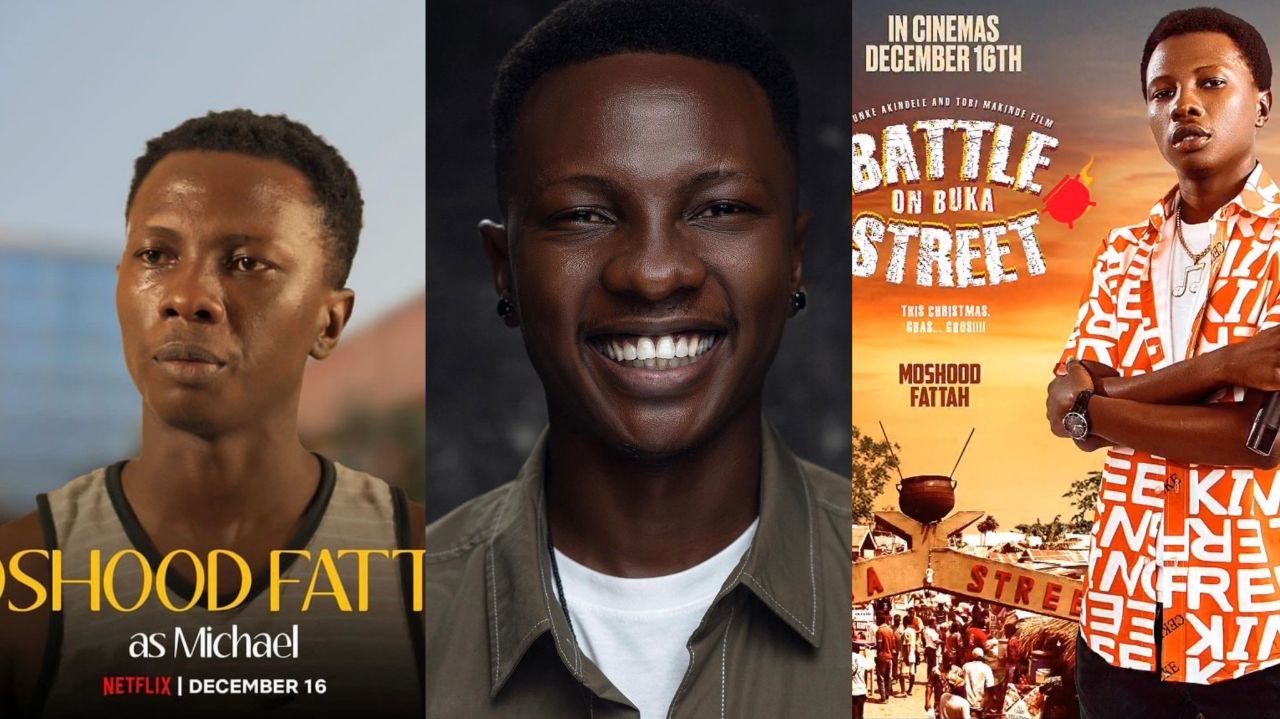When Jade Osiberu introduced us to the raw talent that is Maleek of the Ikorodu Bois fame in Gangs of Lagos (2023), it was his impressive performance as a conflicted street teen that immediately endeared us to him, one that won him an AMAA award that same year. Now, in Aburo, a tender, heartwarming tale of courage and destiny, Maleek once again plays the role of a troubled street-smart kid. This time, he is with an exceptional athletic gift.

Set in modern-day Lagos against the vibrant backdrop of the city’s class divide, Aburo follows the story of its titular character, Aburo, a gifted teenager who is on the verge of being plucked from obscurity to potential stardom by Mide, a former celebrated athlete. Aburo’s life takes a dramatic turn after a chance encounter with Mide (Efa Iwara) one afternoon when Mide, who is naive about street violence and tactics loses his wallet to Aburo while trying to separate two boys fighting. Mide, a former athlete, gives Aburo a hot pursuit for his wallet and is shocked to discover the street boy’s sprinting ability.
Mide is intrigued by Aburo’s athletic prowess after that afternoon chase. He sees in Aburo, a reserve of untapped talent that needs mentoring. He believes Aburo has the potential to become a global sensation if nurtured rightly. From that moment, he decides to take on the role of Aburo’s mentor, passionately coaching the young boy into becoming a better and more disciplined athlete. But as Aburo progresses in this new journey, his new life of higher purpose clashes with his loyalty to the tumultuous street world he grew up in. He is torn between the decision to stay or abandon the street life which would mean leaving behind his family, friends and an angry mob lord.
Director Yemi ‘Filmboy’ Morafa’s works often explore complex characters navigating through life’s issues and how such challenges shape them. This is evident in The Wait (2022), Silence (2023), and Something Wicked (2017). Aburo follows this pattern, presenting us with equally relatable characters going through life. Morafa allows the story to unfold entirely through a lens shone on Aburo, a thieving street boy and his daunting journey towards becoming a professional athlete. The movie’s overall tone— the remarkable transformation of a troubled street teen and his surprising resilience in the face of obstacles— elevates Aburo into something far more valuable than a feature-length sports drama.
Our protagonist, Maleek Sanni (Aburo), delivers a brilliant performance which is a significant improvement from his earlier effort in his smaller appearance in Gangs of Lagos. Aburo’s sister, Rofi is played by the ever-dazzling Darasimi Nadi who impressed us in the 2022 musical drama, O’baram. Although not his best performance, Efa Iwara (A Naija Christmas) lends an emotional depth to the story through his character— a failed athlete grasping for love and redemption. Wumi Toriola as Aburo’s well-meaning aunt shines through the movie as well, even as her fragile relationship with Aburo is fraught with drama. Good acting feels realistic, and even in subtlety will still convey complicated emotions with a single understated glance. Wumi Toriola achieves this with her character, a range I’ve not seen her display perhaps due to her minor roles in her recent big screen credits like Ada Omo Daddy, Battle on Buka Street, and Orisa. Despite his efforts, the ebullient Yemi Cregx (Pompei) falls short of delivering a memorable, convincing character as a street lord, and a little shy from being declared flat. Toni Tones (Edak) and the veteran Charles Inojie (Old Soldier) bring their characteristic flair to the film.
As much as the future holds great promises for Aburo outside the ghetto, he struggles to let go of the ties and duties that bind him to his home. This births the other challenges he must fight against as a conflicted teenager with a rough street upbringing, who cares about his home. The sibling relationship between Aburo and Rofiat provides a deeply moving and cathartic experience for the audience up until the devastating plot twist. The convincing performances by Maleek and Darasimi keep viewers engaged. Nonetheless, the film is marred by some flaws, including unconvincing and overly dramatic dialogue, as well as slow-paced scenes that disrupt the flow.
However, the writing in Aburo is clever and the way the script interweaves the familiar and unfamiliar in a less generic Nollywood plot lends the film a certain freshness. The nonlinear/fragmented narrative somehow manages to hold itself together and find a conclusion that is not contrived. Overall, Aburo is an inspiring celebration of the resilience of the human spirit captured through a fascinating kaleidoscope of its characters’ perils and triumphs. The film’s thoughtful exploration of familial relationships and street dynamics, combined with strong performances from the young cast makes the film a satisfying cinematic experience.
Aburo premiered in cinemas on May 1, 2024. It makes its digital debut on Kava on October 9, 2025.
Share your thoughts in the comments section or on our social media accounts.
Keep track of upcoming films and TV shows on your Google calendar.
Side Musings
- Aburo should have asked for financial help from Mide for his sister’s medical expenses. But he does not, and it questions the coach-mentee relationship the film sells to us if Mide does not create that safe space where Aburo can be vulnerable enough to open up to him.
- Edak and Mide’s onscreen chemistry is lacking and boring, ultimately rendering their budding love story soulless.
- Charles Inojie’s acting in Aburo perfectly mimics his character in African Magic, The Johnsons: smart, humorous and a studied wit.






2 Comments